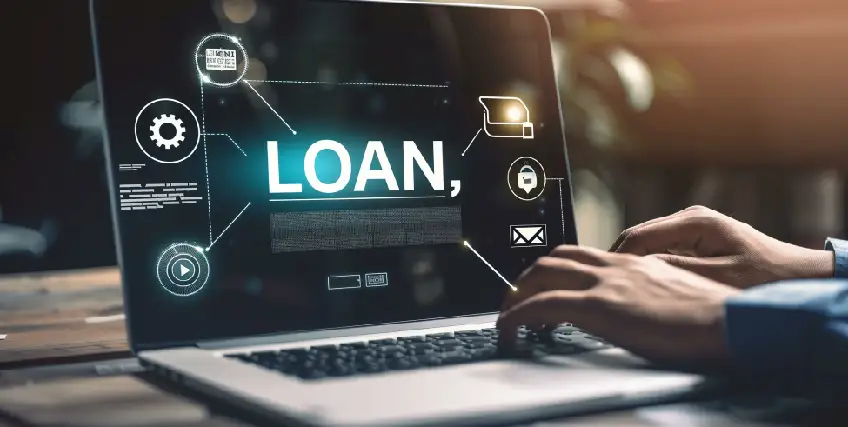Four Steps to Understanding Unsecured Business Loans
March 8, 2025 | Last Updated on: March 8, 2025

Many people think of business loans in the more traditional sense: A company needs money for a specific reason, like to cover a large purchase or buy inventory, so a bank provides loans for those big-ticket items. Once approved, the money goes directly towards that purchase and repayment is tied directly to the item or property.
Conversely, many lenders also offer what is known as an unsecured business loan. These loans don’t always require a specific purpose and may not need more than a great credit history to get approved. Here’s a look at how unsecured business loans work, and the risks and benefits involved.
What are Unsecured Business Loans?
An unsecured business loan is open-ended funding provided to a business that isn’t tied to, or secured by, any collateral asset. Loan approval is based on the creditworthiness of the business, or the business owner themselves. The proceeds from the loan can be used for a variety of business needs.
Unsecured loans differ from secured loans as they don’t require any collateral. When many businesses apply for and receive a loan, the funds they get are secured by something valuable. This collateral might be:
- the specific object being purchased
- existing savings in the bank
- other assets owned by the business getting the loan
If loan funds are intended to purchase a piece of equipment or commercial real estate, collateral on a secured loan is fairly straightforward. When the loan is being used for something like a business expansion or operational costs, things get a bit cloudy. In this case, banks and other lenders may require the business owner to sign over other property or cash as collateral to secure the loan.
Unsecured loans don’t explicitly require any collateral. These loans are approved solely on the creditworthiness of the business, the business owner, and any partners involved in the operation, based on factors like their prior payment history on business credit cards and loans. If approved, a business borrower can receive loan funding for an unsecured loan with little more than a signature. This is why they are sometimes also referred to as signature loans.
Unsecured business loans place a much higher burden of risk on the lender, because there is no direct way to recover their money should the borrower default on the loan. Instead of being able to just seize a collateral asset, as with a secured loan, lenders don’t have clear recourse if and when a borrower defaults on an unsecured loan. For this reason, lenders may end up placing a blanket lien on other business assets or may require a personal guarantee from the business owner when issuing an unsecured loan, to ensure the loan’s repayment in full.
How to Get an Unsecured Business Loan
Applying for an unsecured business loan is nearly identical to the process of a secured loan. You’ll skip the step where the bank collects information on any collateral assets being used to secure the loan. Beyond that, the biggest differences in the application process are related to the borrower and how the lender views the borrower’s credit history.
The actual loan requirements will vary by lender and the details of each unsecured business loan application.
In some cases, a business owner may have a particularly strong relationship with their bank or credit union, and can establish a level of trust that may help overcome a shortfall in one or more of these requirements. Barring that, the general rule is that qualifying for an unsecured loan requires excellent credit, including a strong history of on-time payments.
Advantages of Unsecured Business Loans
If you and your business qualify, unsecured business loans can have several advantages over traditional business loans.
- Application Times: Because a lender doesn’t need to spend time appraising and inspecting collateral assets to secure the loan, application times are typically much faster with unsecured business loans. Sometimes, lenders offer expedited credit approvals to business borrowers, along with fast deposit times for the loan funds.
- Loan Amounts: Your total available unsecured loan amount can sometimes be limited by the fact that there is no collateral. However, depending on your assets, unsecured loans may actually net a larger approved loan amount for some borrowers, since they are not tied to the value of an item or piece of property.
- Use of Funds: Unsecured business loan funds come with more flexibility than secured loans. Since traditional loan funds are tied to a specific purchase or purpose — like educational expenses or the purchase of a building — they usually can’t be used for any other reason. Unsecured business loans are typically open-ended with few (if any) limitations, so they can be used for anything from debt consolidation to renovations, business upgrades, operating expenses, marketing costs, and more.
Disadvantages of Unsecured Business Loans
Unsecured business loans won’t be the best choice for every company, however. In many cases, these loans may be a more expensive and riskier option overall, with a few key downsides to note.
- Interest Rates: Lenders base their interest rates (at least partially) on how risky they view a particular loan and borrower to be. Since there is no direct way for the lender to recover their money in the event of a default on an unsecured business loan, they will often set a much higher price for this debt, expressed as the annual percentage rate (APR). In addition to higher interest rate ranges, some lenders may charge origination fees, prepayment penalties, and other costs on unsecured business loans, as well.
- Terms: Though unsecured loans offer more flexibility in how the money can be used, lenders may place more restrictive limits on how the debt can be repaid. This may mean limiting loan options like available repayment terms (how long you have to pay back the debt), which could increase your monthly payment requirement. In addition to fewer loan terms, there can also be less opportunity to refinance an unsecured loan.
- Loan Amount: The total amount that a lender is willing to offer on an unsecured business loan or line of credit may be capped at a certain level. While a business owner may be able to borrow more money for a specific purchase with a secured loan, their ability to borrow a larger lump sum may be limited when no collateral is involved. You could also find that unsecured business loans have higher minimum loan amounts than you might need, depending on how you plan to use the funds.
- Personal Guarantees: Even though unsecured loans don’t tag specific assets as collateral, some banks and lenders may still require you to secure loan funds with assets or personal guarantees that feel a lot like collateral. Yes, the actual business loan is "unsecured," but lenders often want some security that they’ll get their money back in the end.
Many business owners today are asked for a personal guarantee that their unsecured business loan will be repaid. This means if a business loan goes into default, the business owner’s personal assets like homes, cars, and even bank accounts can be seized to help the lender recover their money.
Choosing an Unsecured Business Loan
- Know what you need. Chances are your needs for a business loan are different than if, say, you were taking out a personal loan for a home improvement project or to consolidate student loans. When it comes to business unsecured loans, be sure to calculate not only how much you need to borrow but also what you’ll pay based on your variable or fixed rate loan and how much your business can afford in monthly loan payments. Many lenders offer online calculators with payment examples, so you can really play with the numbers.
- Research to find the right lender. Each lender is different in terms of eligibility requirements, loan availability, and features. Spend some time researching different potential lenders based on your biggest requirements and needs.
- Shop around. By shopping around and even applying through multiple lenders, you can often find a lower interest rate and better terms on installment loans and other products. Some lenders may allow for pre-approval of unsecured loans online, which will make the process even faster and easier.
Final Thoughts on Unsecured Business Loans
Whether or not an unsecured business loan is right for your needs will depend on many factors. Some business owners find that the cost and requirements of an unsecured business loan outweigh the benefit of collateral-free borrowing. New businesses may benefit from the more flexible use of funds and shorter approval times, but more established companies often find a more traditional funding route provides them with the best path forward.
FAQs
What is an unsecured loan for businesses?
Unsecured business loans are installment loans that can be used by businesses to pay for large purchases, make renovations, or even cover operating expenses. Loan eligibility is based on factors like your business credit report and cash flow, but these loans don’t hold business assets (like real estate or deposit accounts) as collateral.
Can I get a loan with an EIN number?
An employer identification number (EIN) can sometimes be used on its own to get a business loan, but many lenders will also require a Social Security number (SSN) and other personal information to get approved. A strong (and lengthy) business history and credit report is often required when wanting to only use an EIN.
How much money can I borrow unsecured?
Unsecured business loans may offer tens or even hundreds of thousands of dollars in unsecured loan funds without requiring collateral. How much you can borrow depends on your business’s credit history, cash flow, and operating history. Your personal credit may also come into play, including factors like your debt-to-income ratio (DTI) and payment history, in order to get loan approval.
How hard is it to get an unsecured business loan?
Just like personal lines of credit and loans, most standard unsecured business loans don’t require a down payment or collateral. However, this means that approval is heavily dependent on business and personal credit history, business cash flow, and even the financial history of the company. This can make it harder to get an unsecured business loan compared to borrowing money secured by collateral.
Where do I find the best unsecured loans for my business?
To find the right unsecured business funding for your company, first start searching with banks and lenders you are already connected to, like wherever you have a business savings account or checking account. You can also try searching online for “unsecured loans near me,” asking other business owners, or using an online broker platform to search for loan options through multiple top-rated lenders at once.




